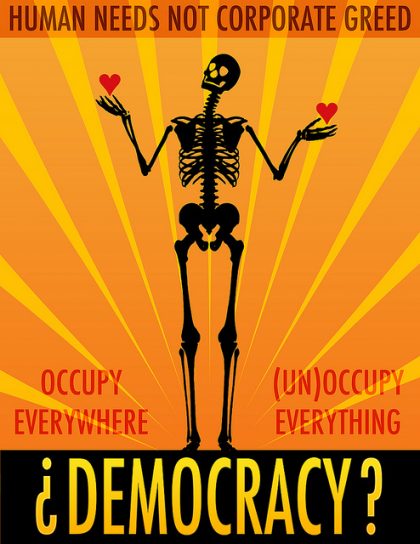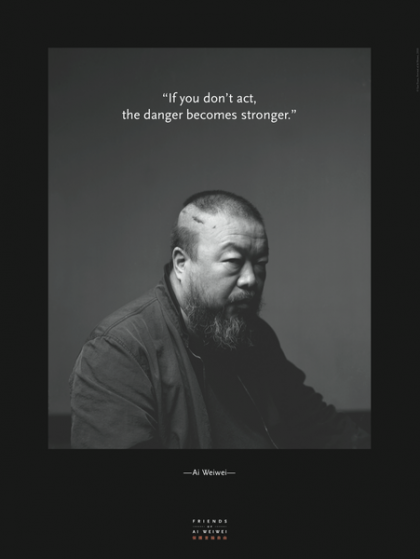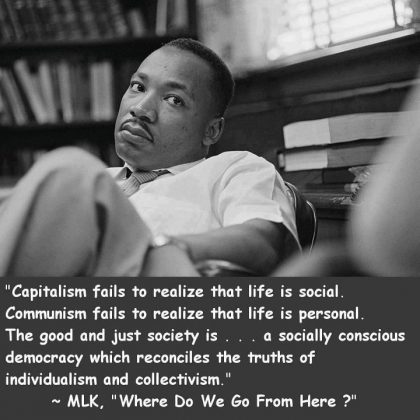Yule and the Waxing Gibbous New Year Moon

Where’s the Webb? 80% of the way to L2. 723000 miles from home, 176000 miles to L2 insertion. Down to .2132 mps. Mission day 17.
Tuesday gratefuls: The cleaners. A sparkly, yet still disorganized upstairs. Bowe coming tomorrow for backsplash work. The setting sun. Gabe and his presents for his Dad: Crappy Taxidermy, a book, and Things That Can Kill You, a 2022 calendar.Working my new schedule. Worked on my pagan book, a forever task related to reimagining faith. Who knows, maybe I’ll finish it. Waiting on delivery of the Werewolf book by Marina Warner. Gonna do more research and pick up Lycaon for another novel. Also, planning to re-read Jennie’s Dead, get back into it. Writing Ancientrails as Kep and Rigel run the fenceline, loudly, with Zeus, Boo, and Thor. When Jude comes home.
Sparks of Joy and Awe: Change and its beauty
Tarot: Ten of Vessels, Happiness (same as yesterday!)

Want to come at the whole democracy debate from a different angle. A Chinese perspective, tianming. The Mandate of Heaven. In the Zhou dynasty (1046-256 B.C.E.) the Emperor and his government (always him in those days) had the Mandate of Heaven if the people did well. “The ‘Mandate of Heaven’ established the idea that a ruler must be just to keep the approval of the gods. It was believed that natural disasters, famines, and astrological signs were signals that the emperor and the dynasty were losing the Mandate of Heaven.” PBS learning media
Good crops, freedom from plague, no warring factions, healthy villages. But. As with Celtic Kings, if the crops went bad, or plagues killed many people, or warlords disturbed the peace, then the ruler could be called to account. The Emperor, the Chinese would say, had lost the mandate of heaven. In that case others could vie for the throne. As long as the Emperor had the mandate of heaven, anyone rebelling against him would not gain traction in early imperial China.
It’s not a bad way to judge a government. If the citizens do well, then the government is just. If not, then it’s unjust and needs to fall. It’s an unspoken assumption among us democrats (small d) that a government by the people and for the people will serve the people’s interests. Yet we’re gaining striking experience in a “democratic” government which makes the opposite assumption. If the government serves the needs of its wealthiest and most influential, its corporate class, then it has met the mandate of money. If we’re makin’ money, things are ok. If not, change the government or at least its policies.
 Our form of government, far from the only one, is in danger right now of losing the mandate of heaven by basing its survival on the mandate of money. The weird part is that many folks most damaged by the mandate of money are the ones rebelling against the old democratic regime. Yes, it was a center right thing all along, but at least some progress got made and people weren’t dying by the thousands. So here we have the strange circumstance of rebels insisting on more corporate influence, more oligarchic rule, yet rebels whose own jobs are often in jeopardy.
Our form of government, far from the only one, is in danger right now of losing the mandate of heaven by basing its survival on the mandate of money. The weird part is that many folks most damaged by the mandate of money are the ones rebelling against the old democratic regime. Yes, it was a center right thing all along, but at least some progress got made and people weren’t dying by the thousands. So here we have the strange circumstance of rebels insisting on more corporate influence, more oligarchic rule, yet rebels whose own jobs are often in jeopardy.
The Chinese imperial government had one thing that we don’t have. Homogeneity. The Han majority are almost 94 percent of the large Chinese population. Yes, there is a lot of diversity in China, but the numbers of the non-Han population are miniscule compared to say the Latino or African-American percentages of the U.S. population.
This helps explain the strange politics of our moment. There is no need for Han supremacy politics since it’s already baked in to the perception of Chinese citizens. Minorities might wish things were different, the Uighurs for sure do, but their chance of making waves based on ethnic politics is zero or at least vanishingly small.
 In the U.S. however the oligarchs have a situation where the white population sees its share of the population shrinking, the sort of jobs its middle and working class depended on disappearing, while increasingly restive ethnic politics like Black Lives Matter strengthen the influence of the non-white population. The road to power still runs through the valley of white privilege though for how long is anybody’s guess. Uncertainty feeds the politics of ressentiment. Ressentiment is “a psychological state arising from suppressed feelings of envy and hatred that cannot be acted upon…” Oxford online dictionary.
In the U.S. however the oligarchs have a situation where the white population sees its share of the population shrinking, the sort of jobs its middle and working class depended on disappearing, while increasingly restive ethnic politics like Black Lives Matter strengthen the influence of the non-white population. The road to power still runs through the valley of white privilege though for how long is anybody’s guess. Uncertainty feeds the politics of ressentiment. Ressentiment is “a psychological state arising from suppressed feelings of envy and hatred that cannot be acted upon…” Oxford online dictionary.
Thus a certain percentage of the white population in the U.S. feels that its Mandate of Heaven has been violated. Loss of manufacturing jobs, automated work places, a further elevation of education as a job requirement. They feel justified in their rebellion, their January 6th moments, because the old, comfortable world in which white was right has begun to come undone.
 African-Americans and perhaps to a lesser extent Latinos look to different Mandates. African-Americans had the mandibles of slavery instead of a Mandate of Heaven. Latinos had sufferance for agricultural work, but met resistance to permanent immigration. Both hope for a new Mandate of Heaven whose arc of acceptance would include them. In the eyes of these communities the American Mandate of Heaven, its Manifest Destiny, has brought them suffering and oppression, not good crops and disease free villages.
African-Americans and perhaps to a lesser extent Latinos look to different Mandates. African-Americans had the mandibles of slavery instead of a Mandate of Heaven. Latinos had sufferance for agricultural work, but met resistance to permanent immigration. Both hope for a new Mandate of Heaven whose arc of acceptance would include them. In the eyes of these communities the American Mandate of Heaven, its Manifest Destiny, has brought them suffering and oppression, not good crops and disease free villages.
I think its fair to say that our government, its Mandate of Heaven, tenuous though it was even for working class white folks, has not served the needs of our minority populations and the poorer segments of the white population. This is a pragmatic way of judging the viability of government. Throw out the pursuit of liberty and equality before the law, throw out independence and freedom, the Bill of Rights and instead ask if this government has delivered for its citizens. The answer any honest auditor would give is no.
 It may be time to give up the shibboleth of democracy and ask the hard question: Is this an effective form of government for our time, for all of our people? If the answer is no, as I think it must be, then what form of government will serve all of us? This might be the real question rather than trying to prop up a republic with arcane rules that serve the rich and not the poor.
It may be time to give up the shibboleth of democracy and ask the hard question: Is this an effective form of government for our time, for all of our people? If the answer is no, as I think it must be, then what form of government will serve all of us? This might be the real question rather than trying to prop up a republic with arcane rules that serve the rich and not the poor.













 Life continues, no matter. Until it doesn’t, of course. That is, even when an evil bastard like Trump is in office, we still have to eat. When a rampant virus rages, we still have to sleep. When a family member is ill, we still love each other, support each other. Life is a miracle and wasting it, well, please don’t.
Life continues, no matter. Until it doesn’t, of course. That is, even when an evil bastard like Trump is in office, we still have to eat. When a rampant virus rages, we still have to sleep. When a family member is ill, we still love each other, support each other. Life is a miracle and wasting it, well, please don’t. No matter how proximate or distant disturbances in the force, science goes on, literary folks write books and articles, the past remains a source of inspiration, and the future a source of hope. No matter whether life has meaning or whether it is absurd (as I believe) the secondary effects of this strange evolutionary push into awareness persist. And, yet they persisted.
No matter how proximate or distant disturbances in the force, science goes on, literary folks write books and articles, the past remains a source of inspiration, and the future a source of hope. No matter whether life has meaning or whether it is absurd (as I believe) the secondary effects of this strange evolutionary push into awareness persist. And, yet they persisted. Mt. Evans and its curved bowl continues to deflect weather toward us here on Shadow Mountain. The light of dawn hits Maine first, as it has for millennia. The polar vortex slumps toward Minnesota.
Mt. Evans and its curved bowl continues to deflect weather toward us here on Shadow Mountain. The light of dawn hits Maine first, as it has for millennia. The polar vortex slumps toward Minnesota.

 This suggests to me that far from being frightened on this night of nights, the ancients anticipated it, probably looked forward to it. But, they also wanted to be sure it would happen again and again, so they spent vast resources ensuring they would know its arrival.
This suggests to me that far from being frightened on this night of nights, the ancients anticipated it, probably looked forward to it. But, they also wanted to be sure it would happen again and again, so they spent vast resources ensuring they would know its arrival. Darkness need not lead to despair. These depths, this night, this virus, are not static. Just as fecund darkness enriches all plant life in the fallow season, so does the light of creation shine each year to enrich the plants in the green time. We know that because tonight teaches about darkness and its twin, the Summer Solstice, teaches us about light. Both necessary. Like the symbol of the Tao.
Darkness need not lead to despair. These depths, this night, this virus, are not static. Just as fecund darkness enriches all plant life in the fallow season, so does the light of creation shine each year to enrich the plants in the green time. We know that because tonight teaches about darkness and its twin, the Summer Solstice, teaches us about light. Both necessary. Like the symbol of the Tao.